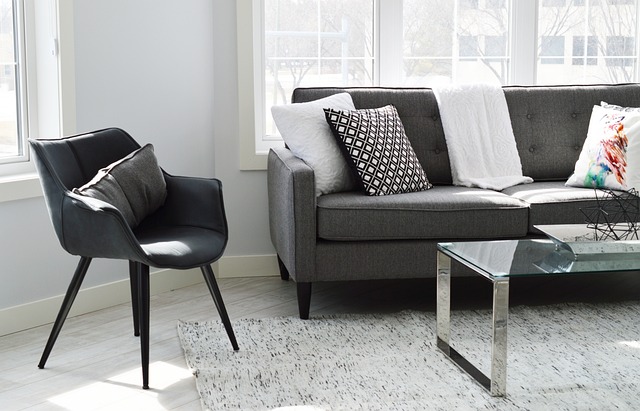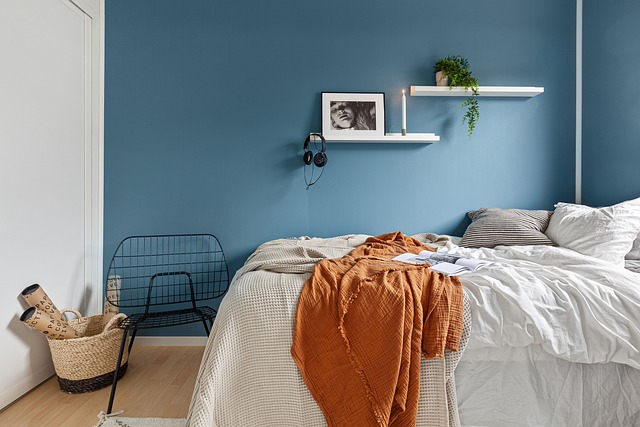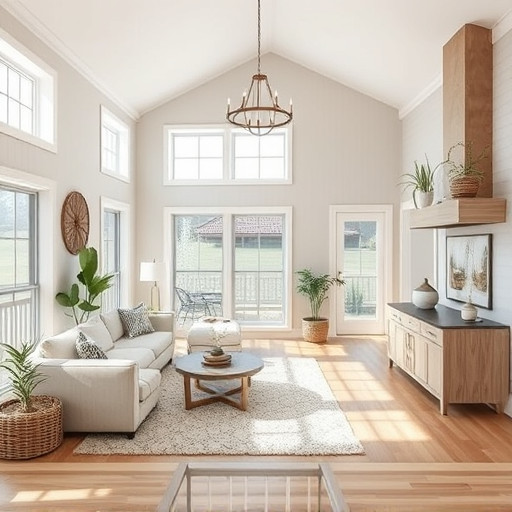Homeowners are choosing energy-efficient renovations to save on costs and support sustainability. Upgrading insulation, installing high-efficiency HVAC systems, and switching to LED lighting are key actions that improve comfort while reducing energy use. Smart home technologies like programmable thermostats and Energy Star-rated appliances help optimize energy consumption further. Enhanced window glazing and the addition of solar panels contribute to both a healthier living environment and financial savings on utility bills. These sustainable renovations are not only economically beneficial but also demonstrate a commitment to environmental stewardship. By focusing on insulation upgrades, selecting efficient windows, and utilizing advanced HVAC systems with smart thermostats, homeowners can significantly cut energy expenses and contribute to conservation efforts. These measures, which fall under the category of home renovations, are not only cost-effective but also support a sustainable lifestyle, making them an attractive choice for environmentally conscious homeowners.
Homeowners seeking to curb rising utility costs and promote sustainable living can benefit immensely from energy-efficient upgrades during home renovations. This article delves into strategic enhancements that not only maximize home efficiency but also significantly reduce monthly bills. From the critical role of quality insulation and windows in conserving energy to the wise investment of high-efficiency HVAC systems, each upgrade is examined for its impact on comfort and energy savings. Embark on a journey through the essentials of home renovations that prioritize both your wallet and the environment.
- Maximizing Home Efficiency: Strategic Upgrades for Sustainable Living and Lower Utility Bills
- The Role of Insulation and Windows in Energy Conservation During Home Renovations
- High-Efficiency HVAC Systems: A Smart Investment for Energy Savings and Comfort in Home Renovations
Maximizing Home Efficiency: Strategic Upgrades for Sustainable Living and Lower Utility Bills
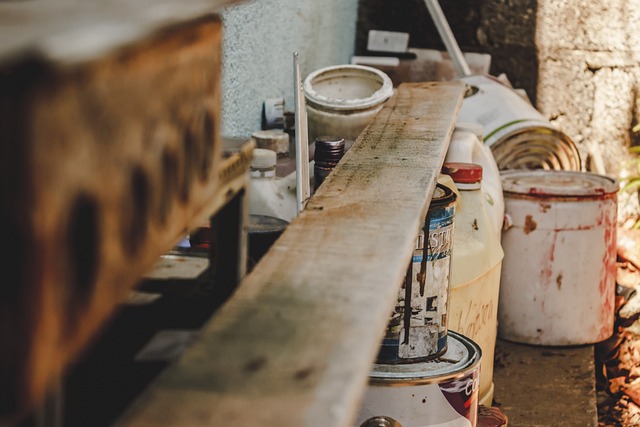
To achieve a more sustainable and cost-effective living environment, homeowners are increasingly turning to energy-efficient upgrades as part of their renovation plans. Strategic renovations not only contribute to reducing environmental impact but also significantly lower utility bills. Key areas for improvement include upgrading insulation, which can reduce heating and cooling losses by preventing temperature escape in winter and summer months. High-efficiency HVAC systems are another critical investment; these systems consume less energy while maintaining optimal comfort levels within the home. LED lighting is another simple yet effective change that reduces electricity consumption without compromising on brightness or quality of light.
In addition to these upgrades, the integration of smart home technology can further enhance home efficiency. Programmable thermostats allow for precise temperature control, ensuring energy is only used when necessary. Energy Star-rated appliances and water heaters can also lead to substantial savings on electricity and gas bills. Windows with double or triple glazing can drastically minimize heat transfer, keeping homes warm in winter and cool in summer. Lastly, the installation of solar panels represents a long-term investment that can offset utility costs by providing clean, renewable energy directly to your home. These home renovations not only make a significant difference in energy consumption but also contribute to a more comfortable and healthier living space for residents.
The Role of Insulation and Windows in Energy Conservation During Home Renovations

Effective home renovations that enhance energy efficiency are crucial for reducing utility bills and conserving energy year-round. One of the most significant factors in this regard is insulation, which acts as a barrier against the transfer of heat between the indoors and outdoors. Properly installed insulation minimizes thermal loss during winter and heat gain during summer, leading to a more stable indoor temperature and reducing the workload on heating and cooling systems. This not only extends the lifespan of these systems but also translates into lower energy consumption and costs. When considering upgrades to improve insulation, homeowners should look at various materials like fiberglass, spray foam, or cellulose, each with its own R-value characteristics suitable for different climates and areas of the home.
In tandem with insulation, the role of windows in energy conservation during home renovations cannot be overstated. Windows are responsible for both solar heat gain and loss. To optimize their performance, homeowners should evaluate the energy efficiency of their current windows and consider upgrading to models with better thermal properties, such as double or triple-pane glazing with low-emissivity coatings. These advanced window features significantly reduce heat transfer and can lead to substantial energy savings. Additionally, ensuring that windows are well-sealed and free from drafts is essential for maintaining the home’s temperature consistency. By integrating high-performance windows and effective insulation into a comprehensive home renovation strategy, homeowners can achieve significant reductions in their utility bills while promoting a more sustainable living environment.
High-Efficiency HVAC Systems: A Smart Investment for Energy Savings and Comfort in Home Renovations
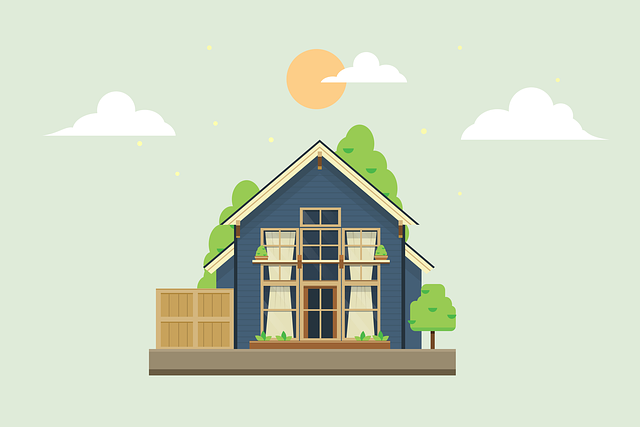
Incorporating high-efficiency HVAC systems into home renovations is a strategic upgrade that promises energy savings and enhanced comfort for residents. These advanced systems are engineered to operate with greater precision, ensuring optimal temperature control while minimizing energy consumption. By replacing outdated models with these energy-conscious units, homeowners can significantly reduce their utility bills, as the latest HVAC technology offers superior efficiency ratings compared to older systems. Moreover, the integration of smart thermostats, which often accompany high-efficiency HVAC installations, allows for even greater control over energy usage. These intelligent devices learn from your habits and adjust the heating and cooling systems accordingly, leading to a more personalized and sustainable living environment. The initial investment in high-efficiency HVAC systems is offset by long-term savings, making it a smart choice for those looking to renovate their homes with both comfort and energy efficiency in mind.
Furthermore, the benefits of high-efficiency HVAC systems extend beyond mere cost savings. They contribute to a reduced carbon footprint, aligning with environmental sustainability goals. During home renovations, it’s an opportune moment to upgrade insulation and seal drafts, which further complements the performance of these energy-efficient systems. The synergy between modern HVAC technology and improved home insulation creates a barrier against external elements, ensuring that conditioned air stays inside where it is needed most. This results in a more comfortable living space and a home that works in harmony with the environment, emphasizing the importance of thoughtful upgrades during renovation projects.
Homeowners seeking to enhance their living spaces while reducing utility expenses can benefit from strategic home renovations focused on energy efficiency. Upgrading insulation and windows plays a pivotal role in conserving energy, significantly impacting both comfort and costs. Investing in high-efficiency HVAC systems not only promotes sustainability but also ensures consistent indoor temperatures year-round. By integrating these measures, homeowners can achieve substantial savings on their utility bills without compromising on quality of life. These energy-efficient upgrades are more than mere renovations; they represent a commitment to smart, sustainable living within the comfort of one’s own home.
